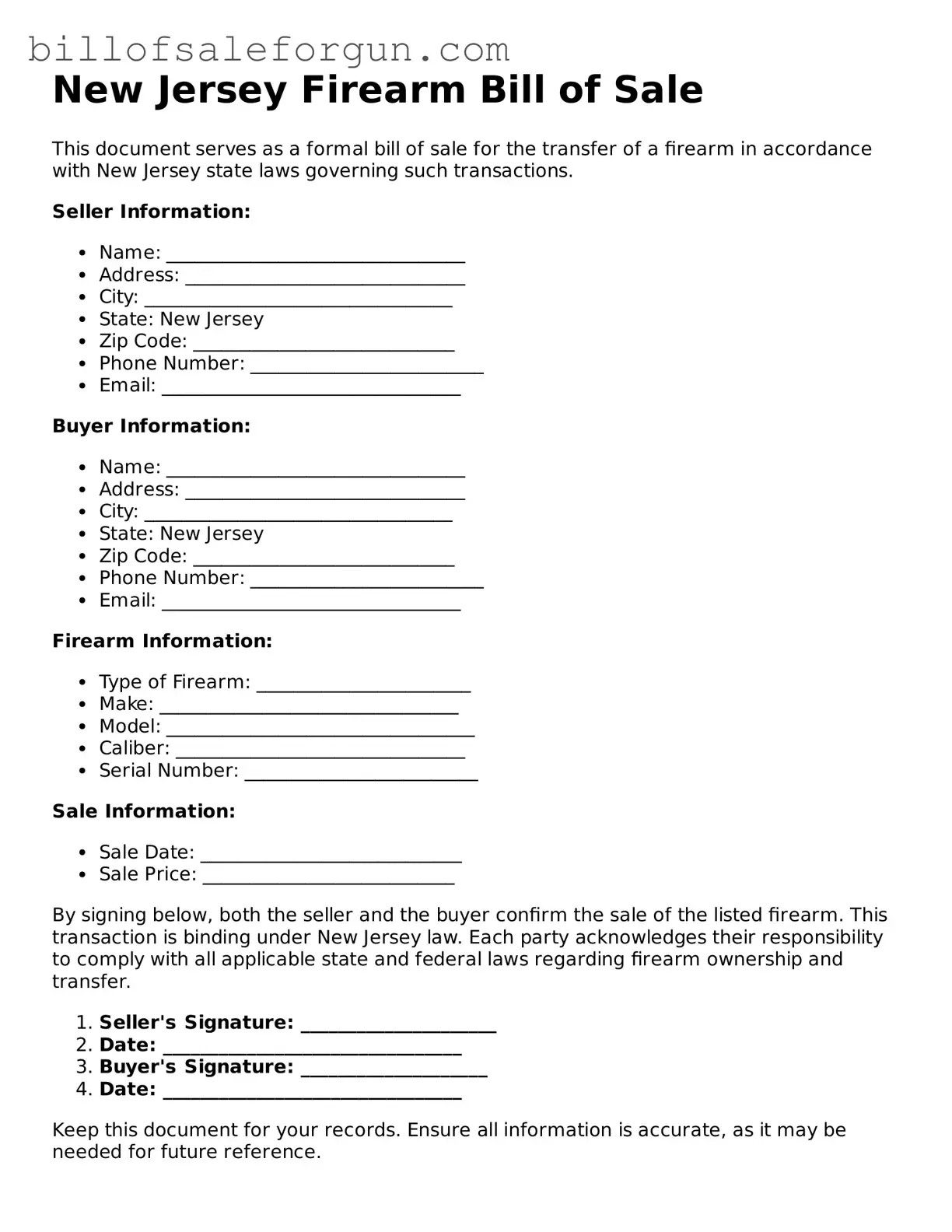Similar forms
The New Jersey Firearm Bill of Sale form shares similarities with the Vehicle Bill of Sale, which is used to document the transfer of ownership of a motor vehicle. Both forms serve as legal proof that a sale has occurred, detailing the buyer and seller's information, the item being sold, and the terms of the transaction. In both cases, a signature from both parties is typically required to validate the agreement, ensuring that there is a clear record of the transfer and protecting the rights of both the buyer and seller.
Another document that resembles the Firearm Bill of Sale is the Boat Bill of Sale. This form is utilized for the sale of watercraft and includes similar elements, such as the identification of the seller and buyer, a description of the boat, and the sale price. Like the Firearm Bill of Sale, it serves to protect both parties in the transaction by providing a written record that can be referred to in the event of disputes or legal issues arising after the sale.
The Personal Property Bill of Sale also bears a resemblance to the Firearm Bill of Sale. This document is used for the sale of various types of personal property, such as furniture or electronics. It includes information about the item being sold, the sale price, and the parties involved. Both documents aim to create a clear and binding agreement that outlines the specifics of the transaction, helping to prevent misunderstandings between the buyer and seller.
A Rental Agreement can be compared to the Firearm Bill of Sale in that both documents establish terms between two parties. While a Rental Agreement outlines the conditions for renting property, the Firearm Bill of Sale details the sale of a firearm. Each document requires signatures to signify acceptance of the terms, and both serve as legal evidence of the agreement made between the parties involved.
The Lease Agreement is another document that shares characteristics with the Firearm Bill of Sale. Both documents formalize an agreement between two parties, detailing specific terms and conditions. While a Lease Agreement pertains to the rental of property, the Firearm Bill of Sale pertains to the sale of a firearm. Each document requires signatures from both parties to be considered valid and enforceable, ensuring that the rights and responsibilities of both parties are clearly defined.
Finally, the Employment Contract can be likened to the Firearm Bill of Sale in that both establish a formal agreement between parties. An Employment Contract outlines the terms of employment, including duties, compensation, and duration, while the Firearm Bill of Sale outlines the specifics of a firearm transaction. Both documents serve as legal evidence of the agreements made and can be referenced in the event of disputes or misunderstandings, highlighting the importance of clarity and mutual consent in contractual relationships.
